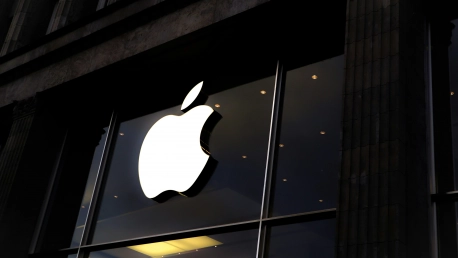Apple has unveiled a cutting-edge AI infrastructure aimed at significantly boosting the AI capabilities of its devices. This advanced system is built by leveraging Google’s cloud architecture, a testament to the growing convergence of leading tech giants to innovate in artificial intelligence. This new infrastructure includes a self-created foundation model, Apple servers, and processors based on the M-series semiconductor architecture, which has become synonymous with the high performance of Apple PCs.The development also presents a Private Cloud Compute system to host Apple’s servers, synthesizing the company’s hardware and software offerings into a unified package called Apple Intelligence. This move marks a significant shift in Apple’s strategy, which seeks to capitalize on both proprietary technology and collaborative cloud resources.
The AXLearn Framework and Cloud Synergy
Merging Proprietary and Cloud Resources
The AI infrastructure leverages Apple’s machine-learning framework known as AXLearn, integrating proprietary Apple servers with Google Cloud’s resources. Published insights on Apple’s blog and GitHub reveal AXLearn’s foundation on JAX and XLA, facilitating efficient and scalable AI model training across diverse hardware and cloud platforms, including TPUs and GPUs configured for both cloud and on-premise environments. This effective collaboration emphasizes not only the potency of hybrid solutions but also Apple’s determination to push its AI boundaries further.Despite Google’s decision not to comment on this collaboration, the partnership underscores a significant step forward for Apple, which had previously discontinued the Intel-based Xserve line of servers back in 2011. The current initiative uses TensorFlow-based models trained on Google TPUs and packaged within Docker containers authorized for Google Cloud Platform usage. Additionally, AXLearn’s support for Bastion orchestrator functionality highlights its adaptability and scalability, currently exclusive to GCP but designed to be extended to other cloud environments. This strategy aligns with industry trends where companies are increasingly adopting versatile, cloud-agnostic solutions to maximize performance and flexibility.
Core Components of Apple’s AI Strategy
Central to Apple’s AI strategy is the development of two proprietary AI models designed to cater to different needs. One is a 3-billion parameter model created for on-device capabilities, balancing performance with the compact and efficient processing power available on personal devices. The second is a more substantial large language model (LLM) designed for server environments with enhanced computational prowess. Both models are meticulously crafted to prioritize user privacy, with hosted AI systems programmed to delete user data immediately after processing query responses. This approach resonates with Apple’s longstanding commitment to integrating privacy at every level of its technology stack, from silicon design to secure software development using the Swift programming language.In practical application, this infrastructure enables Apple’s AI solutions to manage complex demands by dynamically “flexing and scaling” computational resources as required. Custom servers powered by Apple silicon further ensure a high degree of security and privacy for users. In a strategic move to extend its AI functionalities without compromising privacy, Apple has partnered with ChatGPT, allowing users to opt-in for detailed AI-driven responses. This partnership illustrates Apple’s balanced approach, combining robust AI capabilities with stringent data privacy controls to offer users an enhanced yet secure experience.
Competitive Landscape and Strategic Implications
Commitment to Privacy and Security
Apple’s new AI infrastructure underscores its unwavering commitment to privacy and security while significantly enhancing AI capabilities. The company’s strategic investments in AI infrastructure are timely, particularly against the backdrop of a highly competitive landscape where rivals like Google and Microsoft have been heavily investing in AI advancements since late 2022. Apple’s integrated approach, which melds on-device and server-based AI models, represents a nuanced strategy that leverages both proprietary technological innovations and strategic cloud collaborations to deliver a robust and private AI experience.Additionally, Apple’s focus on data privacy not only differentiates its services from competitors but also builds a trusted relationship with its user base, who are increasingly concerned about data security. Through the meticulous design of AI models that transparently handle user data and ensure its immediate deletion post-usage, Apple reinforces its stance on maintaining high privacy standards. This is especially vital as AI technologies become more pervasive in consumer devices, potentially exposing sensitive user data to risks.
Reinforcing Technological Leadership
Apple’s AI infrastructure capitalizes on its machine-learning framework, AXLearn, which merges Apple’s proprietary servers with Google Cloud’s resources. Insights on Apple’s blog and GitHub reveal that AXLearn builds upon JAX and XLA, enabling efficient, scalable AI model training across various hardware and cloud settings, including TPUs and GPUs tailored for both cloud and on-premises use. This collaboration highlights the power of hybrid solutions and Apple’s commitment to advancing its AI capabilities.Though Google has chosen not to comment on this partnership, it marks a significant milestone for Apple, which ended its Intel-based Xserve line in 2011. The current effort employs TensorFlow-based models trained on Google TPUs, packaged in Docker containers approved for use on Google Cloud Platform. AXLearn’s support for Bastion orchestrator functionality ensures its adaptability and scalability, currently limited to GCP but intended for expansion to other cloud platforms. This strategy mirrors industry trends, where companies increasingly adopt flexible, cloud-agnostic solutions to enhance performance and versatility.









